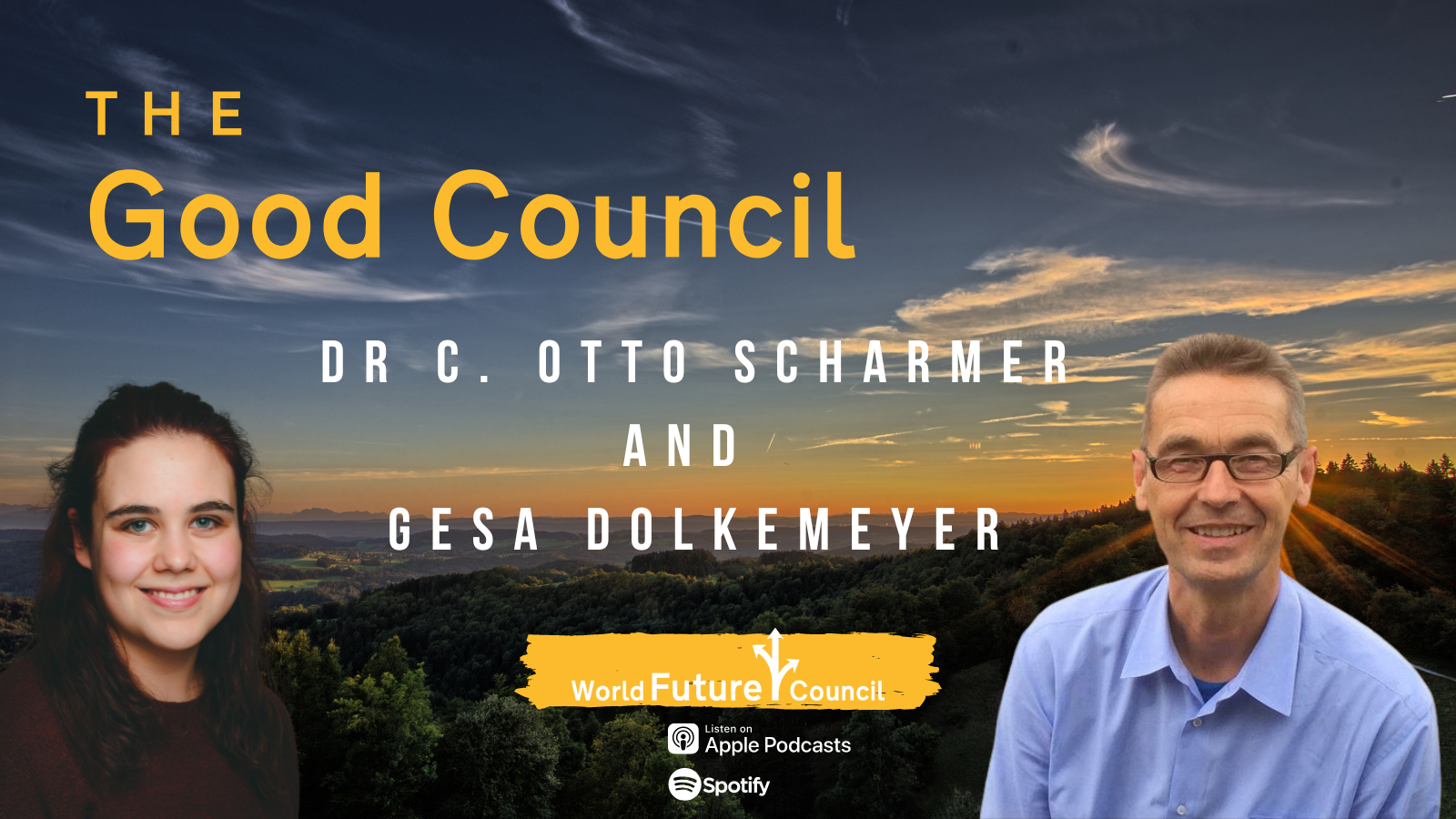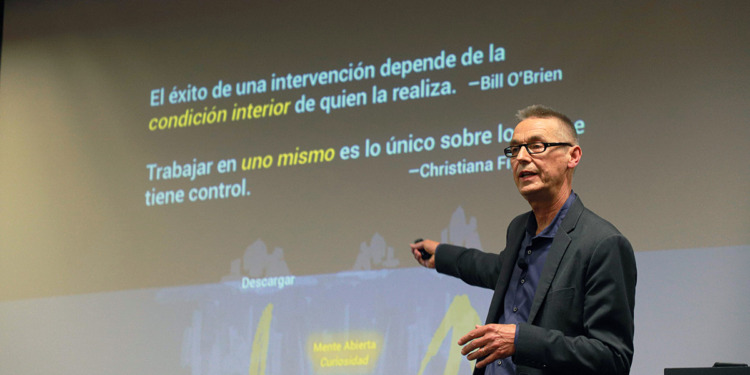This article is part of “The Good Council” series, based on the World Future Council’s podcast of the same name. The series gives a behind-the-scenes look at the organization’s trajectory, from revolutionary ideas to reality, and offers insights into its current agenda.
The podcast provides inspiration, laughter, and food for thought through intergenerational dialogue between its founders, senior Councillors, and young entrepreneurs and activists from around the globe.
The World Future Council aims to give our children and grandchildren a healthy planet with just and peaceful societies. To achieve this, the foundation identifies, develops, highlights, and spreads awareness of future solutions for current challenges humanity is facing, awarding them with the unique Future Policy Award.
The Council consists of fifty eminent global changemakers from civil society, science, politics and business. They meet annually at the World Future Forum to discuss the most urgent challenges and policy solutions.
The guest in “The Good Council” podcast episode that this article is based on is Dr. C. Otto Scharmer, a senior lecturer at the MIT Sloan School of Management, chair of MIT IDEAS program for cross-sector innovation, and co-founder of the Presencing Institute, which supports awareness-based systems change.
In his bestselling books “Theory U” and “Presence” (the latter was co-authored with Peter Senge and others), Dr. Scharmer introduced the concept of “presencing” — i.e., learning from the emerging future. the United Nations Deputy Secretary-General appointed him to the UN Learning Advisory Council for the 2030 Agenda.
Dr. Scharmer is also a member of the UN Learning Advisory Council for the 2030 Agenda, and has been a Councillor of the World Future Council since 2019. He is interviewed here by Gesa Dolkemeyer, the World Future Council’s young data scientist.
 Gesa Dolkemeyer: Through your classes, you deliver innovations in learning and leadership infrastructures. What are the most important messages that you would like to pass to your students?
Gesa Dolkemeyer: Through your classes, you deliver innovations in learning and leadership infrastructures. What are the most important messages that you would like to pass to your students?
Otto Scharmer: What I am saying to them is that the future is already here. But we are not attending to that. To attend to the future, you need to do two things.
If you want to connect to what’s happening tomorrow and connect to innovation, you need to go to the margins of the system. Go outside of your own bubble and immerse yourself in places where something new is happening.
The other thing is to attend to your own experience in a more refined way and open the mind, which means seeing things with fresh eyes and no longer projecting your own judgments onto things.
Gesa Dolkemeyer: What you described summarises the concept of “presencing,” which suggests shifting from a personal, individual-centred approach to a collective one in order to move towards a more sustainable, healthy life. You developed the concept in 2007 in your bestseller “Theory U.” Do you see more connection among people since then?
Otto Scharmer: I would say yes and no. Let me start with the “no” part.
We have war in Europe, we live in the age of Trumpism. Look at what we are doing to our planet. It is the absence of listening, empathy, and connecting with our highest future possibility. This is a cycle of not presencing, but absencing.
On the “yes” part: Look at the outpouring of help for Ukraine in Europe. In the COVID period, despite a lot of obvious absencing, there was also a lot of help, solidarity and connectivity at a local level. Syrian refugees also got really integrated on the “people level” some years ago in spite of the thought “Oh, that’s the end of the world” in certain groups.
Related Articles: Interview With Dipal Chandra, Co-Founder of Nobel Peace Prize Winner ‘Grameen Bank’ | On Activism and the Environment: Interview With Thais Corral
Gesa Dolkemeyer: In your opinion, the connection between people is essential. You became part of the World Future Council in 2019. Do you see the World Future Council and its youth forum Youth:Present as this kind of a connected group that can move change forward?
Otto Scharmer: To be transformative, we have to have a different image of the future that we are striving for. And that’s the conversation that is missing at the moment. I think that’s where the World Future Council is bringing together an interesting constellation of pioneers from various different fields and across generations.
Gesa Dolkemeyer: It’s really important to find new ways of connecting. And that’s also what you are doing with the Presencing Institute, right?
Otto Scharmer: Yes, it is a part of the mission. At the institute we work more on the self and our own interior condition, opening the mind and the heart to connect with what we really want to make happen. And then we bring the ideas that we have thus crystallized into reality, and we learn by doing.
We also prototype new learning infrastructures: to help the next generation to sense and shape the future, we need new methods, tools and spaces of connection.
Gesa Dolkemeyer: Do you think that now is the moment for a new planetary movement, and for bridging and closing divides in society?
Otto Scharmer: We have spent a lot of time messing up things, right? That’s what we really do as humans. But the human spirit has the capacity to wake up. This awakening is beginning to happen and its potential to scale is so significant.
We see this awakening often now. Think about the Paris Agreement 2015 [a legally binding international treaty on climate change]. The hidden recipe behind the success of the Paris Agreement is deep listening to each other and inner cultivation – the things that we have been talking about in this interview.
If you want to affect and impact outer change, you need to cultivate the interior dimension first. That’s the leverage that will transform our relationships. And if we transform our relationships, we transform everything.
— —
Every other week, the Councillors of the World Future Council get together with young activists and changemakers from around the globe to speak for “The Good Council Podcast.” New episodes are released every other Monday and can be listened to here, and a third season is currently in the making!
Editor’s Note: The opinions expressed here by the authors are their own, not those of Impakter.com — Featured Photo Credit: Dr. Otto Scharmer holding a lecture. In the Featured Photo: Dr. Otto Scharmer.










